Supermarkets across Albury-Wodonga and as far north as Corryong are selling out of essentials and the number of people seeking coronavirus testing is growing by the day as fears hit regional Australia.
Hospitals, supermarkets and churches are preparing for the pandemic in regional towns that sit across the New South Wales-Victoria border - the main epicentres of the COVID-19 outbreak.
Testing began in the region two weeks ago at a facility located in Wodonga, away from the main hospital in Albury.
A drive-through clinic for those with symptoms is due to open this week.
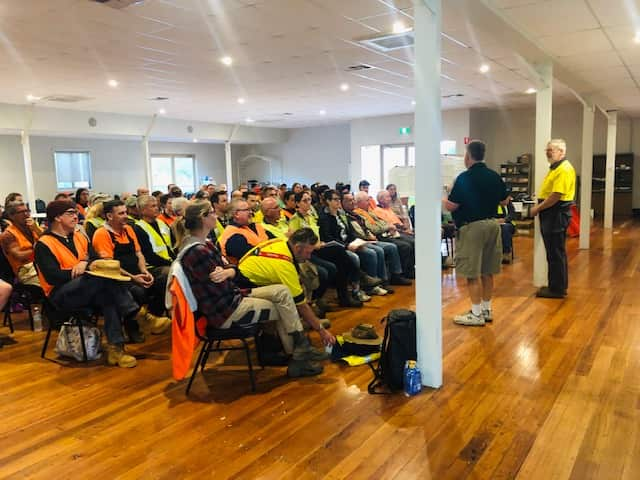
Albury-Wodonga Health executive director of medical services Dr Glenn Davies insists they are fully equipped to handle the crisis, despite more and more people asking to get tested.
“We’re getting lots of inquiries and part of the process now is to work with those individuals to make it clear to them where they do and don’t have risks, if they do meet the criteria, to get them appropriately tested,” he told SBS News.
In the first week and a half of testing, more than 60 people were screened for the virus.
Dr Davies rejects the notion that Albury-Wodonga Health won’t have the staff or resources to cope with an outbreak, saying measures have been put in place should the hospital be overwhelmed.
“We’re doing forward planning, or really potential planning, if in fact there are greater resource requirements,” he said, adding that local GPs and the private hospital is on standby should they need extra support.
Albury-Wodonga also won’t be relying on help from capital cities to manage a potential outbreak, with any cases diagnosed to be treated locally.
It comes as a wave of panic buying hits the Upper Murray.
The main supermarket outlets in the region are continually stripped of toilet paper, with other essential items such as pasta and flour in high demand.
JP Mathews is the manager of the East Albury IGA and says his store sold five weeks’ worth of toilet paper in two days.
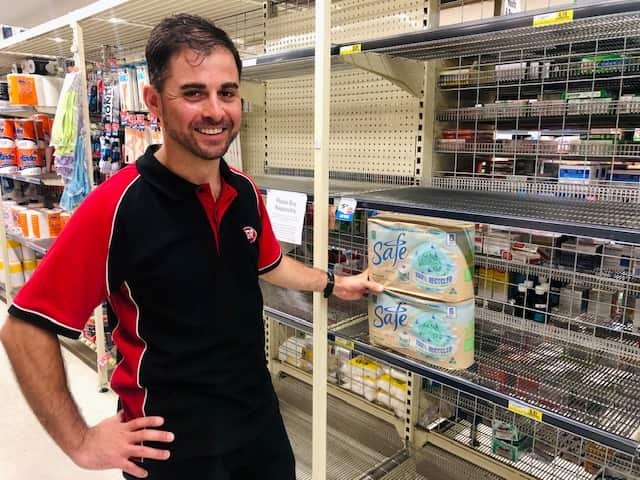
Such stockpiling puts regional shoppers at a disadvantage, he said, as they get fewer deliveries per week than those in the city.
“That was really frustrating that once we were out we couldn’t replenish our stocks, we have a couple of times since then and run out again. We’re asking people 'just buy what you need'.”
The new federal travel restrictions are also impacting holiday plans.
Albury local Cathy Clarkson had booked a once in a lifetime cruise through Asia, only to have it cancelled just weeks before she was due to leave.
“I’m glad they cancelled it because I probably still would have gone, I’m too old to change my mind. We’ll probably never get there now,” she said.
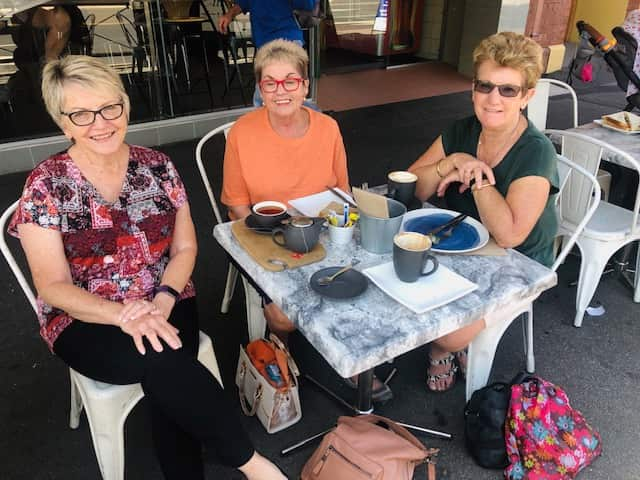
Local tourism operators say the restrictions have delivered a major blow to their business.
Owner of Albury Travel Jacqui Nelson says the vast majority of her customers have been cancelling or changing their travel plans in recent weeks.
She says typically, cancellations are rare, with an average of just one per month, but in the last two weeks she’s had 25 customers cancel their trips.
“We had pilot strikes in the 80s, we had 9/11, we had the global financial crisis and SARS, this is up there with that.”
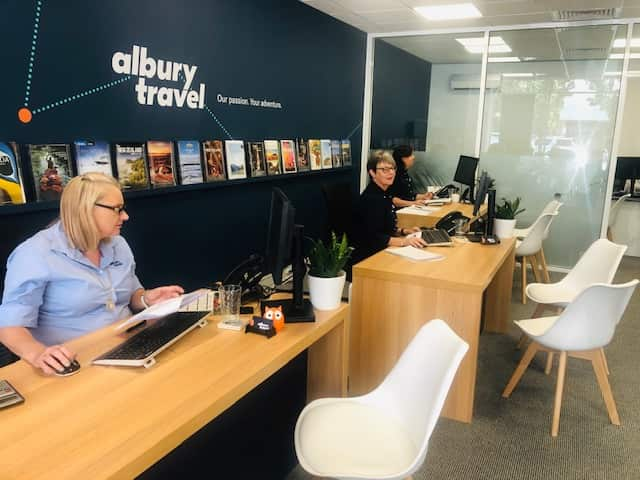
Backpackers coming in to assist with bushfire recovery efforts in the region are also being warned to be aware of COVID-19 symptoms.
Federal member for Indi Helen Haines says she doesn’t want volunteers to be deterred from coming to the Upper Murray, but is asking for a common-sense approach.
“Anyone coming into the region needs to be mindful of where they’ve come from, to be certain they’ve undertaken fundamental things like handwashing and care around any symptoms they may have to seek help early.”
Albury-Wodonga parish priest Father Junjun Amaya is also taking precautions.
A font holding holy water near the front entrance has been replaced with hand sanitiser, and communion wafers are no longer placed on the tongue.
Father Amaya says most parishioners have accepted the new hygiene measures, but the ban on handshaking still requires a reminder.
“People are used to shaking hands as a sign of peace, it’s being discouraged to avoid physical contact, so smile, nod wave, bow to the person, it’s quite awkward.”
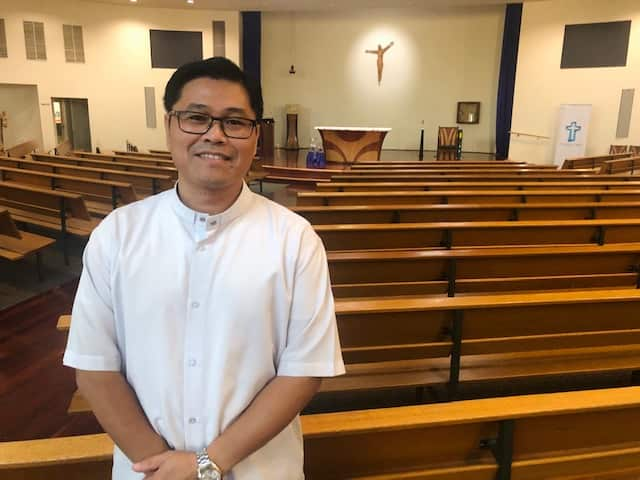
As the number of COVID-19 cases continues to rise in Australia, the people of Albury-Wodonga are hoping the town’s distance from the main capital cities will prevent a major outbreak in their region.
And Father Amaya is urging people not to go to extremes or avoid other members of their community based on their ethnicity.
Father Amaya, who was born in the Philippines, says he recently witnessed an incident involving a person of Asian heritage on an Albury street last week.
“This person just covered his nose and he immediately ran [in response to the person]. He was quite elderly, maybe [in his] 70s. This was the first time I experienced anything like this.”




